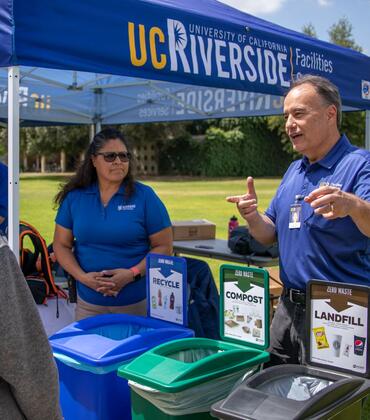UC Riverside recently became a member of the Institute for Research on Innovation and Science or IRIS, a consortium of America’s leading higher educational institutions focused on using administrative data to demonstrate the public value of research and higher education.
With more than $300 million in grants and contracts — a number that has nearly doubled since 2018 — UC Riverside has expanded its research profile well beyond its original agricultural focus. Membership in IRIS will provide the university data-based tools to understand, explain and improve the impacts of its research enterprise on the local, state, and national economies, and on the career and academic paths of its faculty and graduate students.
Rodolfo Torres, UCR’s Vice Chancellor of Research and Economic Development, said the campus is excited to join the Institute for Research on Innovation & Science and its membership of prestigious research universities.
“IRIS data and reports will greatly help UC Riverside in our ongoing efforts to contribute to the economic development of Inland Southern California and beyond, and demonstrate the tremendous impact of our research and scholarly activities on the well-being of our communities,” he said. “Membership in IRIS will also bring new research opportunities for our faculty and students and we are looking forward to sharing and accessing this most valuable data.”
UC Riverside is the first minority-serving institution and Hispanic-serving institution to join IRIS.
“We’re thrilled to welcome UC Riverside into the IRIS family,” said IRIS Executive Director Jason Owen-Smith, a professor of sociology at the University of Michigan. “Our hope is to bring more minority-serving institutions into the initiative, so that we can shed light on the impacts that funded research can have across the full diversity of universities and communities.”
Torres added: “We hope to serve as a leader in this regard, attracting other minority serving institutions to join IRIS as well.”
IRIS will hold a webinar on Feb. 15 featuring Owen-Smith and Torres discussing how IRIS data can help minority-serving institutions demonstrate their impact. Register at https://myumi.ch/RWWj8.
UCR has transformed itself from its origins as a Citrus Experiment Station into an internationally recognized comprehensive Research 1 university. It was the first UC campus to achieve Hispanic Serving Institution status and has been recognized by U.S. News and World Report as the nation’s fastest rising university and ranked No. 1 in the country for social mobility.
Membership in IRIS can help the university continue to progress by providing detailed data on the impacts of research spending, the location and industries of vendors that provide research-related goods and services, and the career pathways of faculty, students and employees, Torres said.
As part of the university’s membership researchers on campus will have free access to the IRIS dataset, which contains not only data from UCR, but also de-identified data on nearly 480,000 funded research awards from 82 other campuses across the country, representing $107 billion in spending, payments to more than 880,000 vendors and wages to about 790,000 employees.
Torres has previously served as a volunteer member of the IRIS Board of Directors.
IRIS was founded in 2015 and is housed at the University of Michigan’s Institute for Social Research, the world’s largest academic social science survey and research organization.




